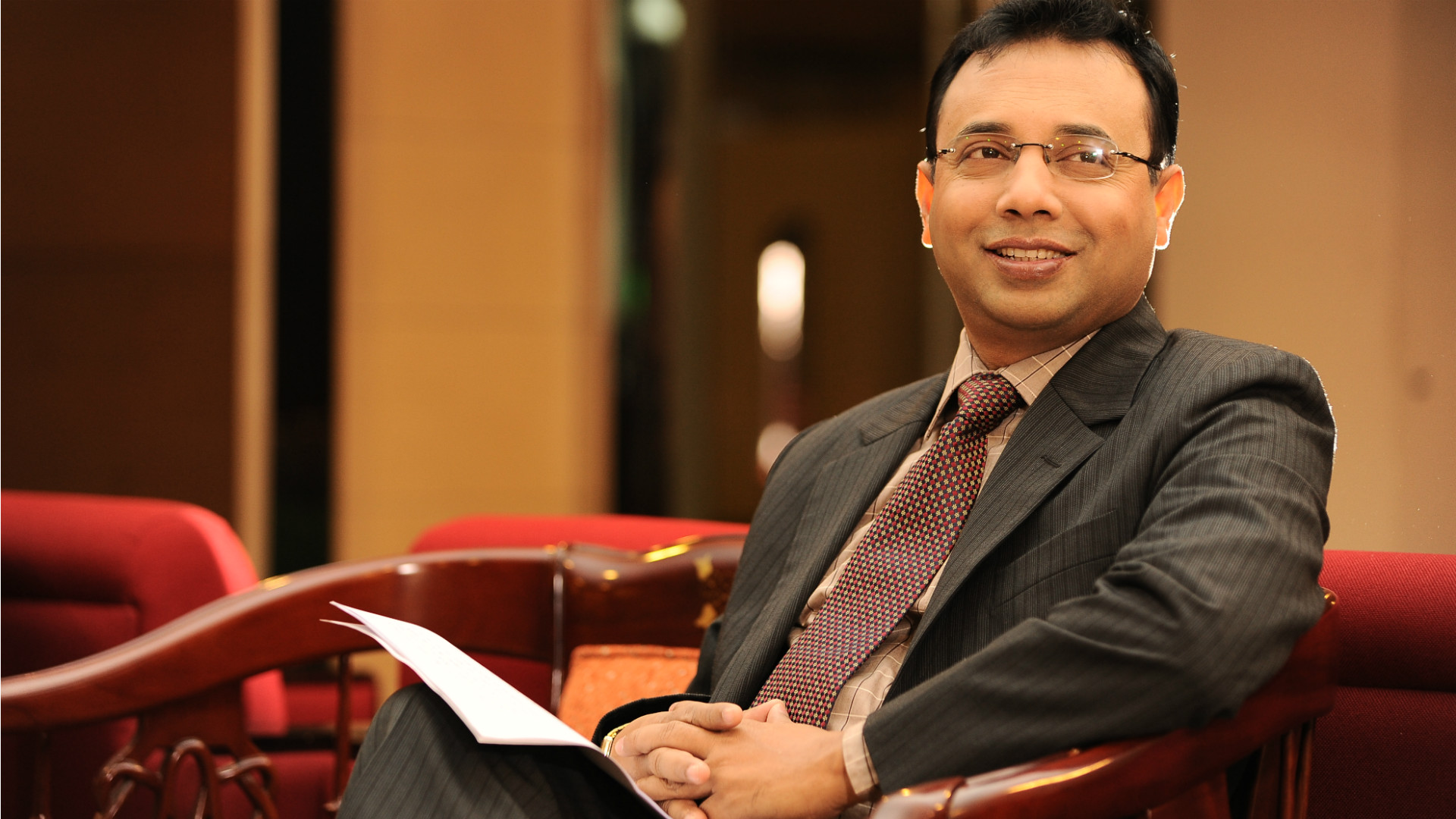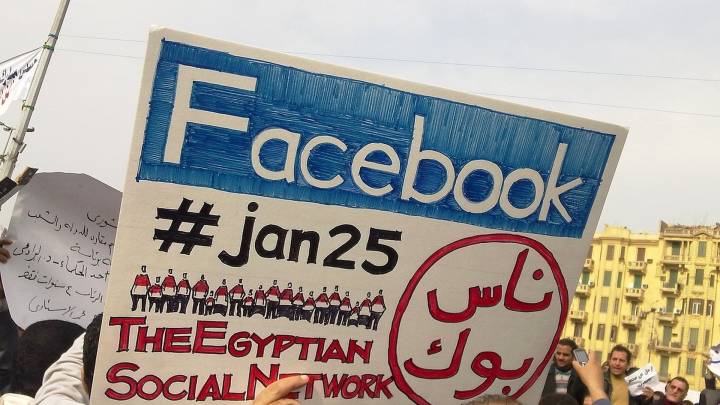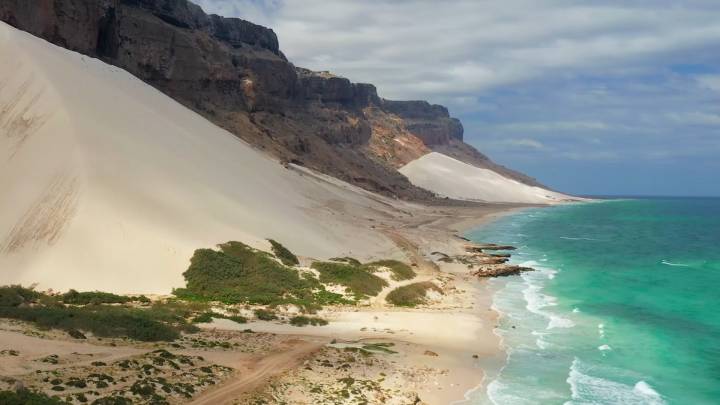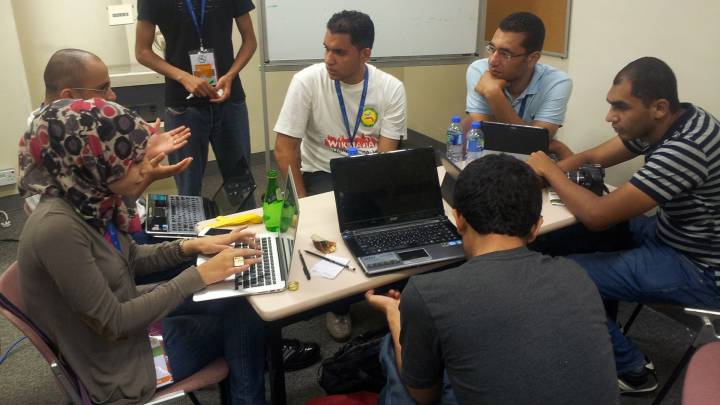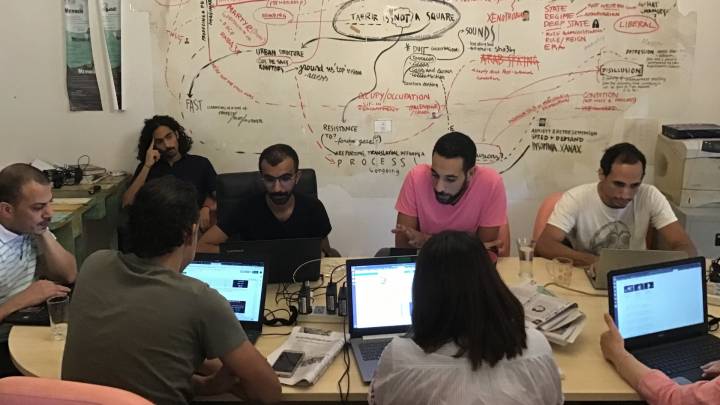His daily political talk show is watched by millions of Bangladeshis every day. Renowned TV host Zillur Rahman about the upcoming elections, fake news, and a repressive new media law.
zenith: Bangladesh is about to hold parliamentary elections on 30 December 2018. What´s moving people one week before the vote?
Rahman: The opposition´s main campaigning issue is to restore democratic institutions, values, and rule of law that are virtually destroyed by the regime in power. On the other hand, the ruling party will try to highlight the increase of state activities in the economic arena and considerable growth and social development in their campaign to win the people. Democracy was never properly institutionalized in Bangladesh. The process of holding a free, fair and credible national election is the main challenge faced in Bangladesh right now.
For more than a decade, Bangladeshi politics have been dominated by two powerful women – Prime Minister Sheikh Hasina (Bangladeshi Awami League) and Khaleda Zia, chairwoman of the main opposition party, the Bangladesh Nationalist Party (BNP)…
...The “battling ladies” are the primary living representatives of Bangladesh’s two most powerful political dynasties…
... Hasina is the daughter of Bangladeshi founding father Mujibur Rahman (1920-1975), while Zia is the wife of General Ziaur Rahman (1936-1981), who gained power after several military coups in 1978. Apart from interim or caretaker governments, Hasina and Zia have been alternating in power since 1991…
...The personal feud between Sheikh Hasina and Khaleda Zia plays an important role in the ongoing party conflict. There are grievances from both sides. But unlike in 2014, I don’t think the BNP will boycott the elections this time. Instead, they have formed the Jatiya Oikya Front, an alliance of several opposition parties. The alliance has nominated Dr. Kamal Hossain, a renowned international jurist, and former foreign minister, as their frontrunner. Khaleda Zia can’t be running in the election due to a recent conviction to five years in prison over corruption charges.
A verdict that some foreign observers might consider to be somewhat politically motivated. However, once in office, the BNP prosecuted opposition politicians with similar rigor. Could Islamist parties profit from the political mudslinging between both camps in the upcoming elections?
I don´t see a strong third party arising. Most of our political parties are acting under the umbrella of the two major parties, usually in the name of alliances. Traditionally, Islamic parties were fairly close to the BNP. But nowadays, the political landscape is shifting. Now, Islamic forces are generally closer aligned to the Awami League.
'A single journalist can change the political fabric of a nation'
The Zia case was not the only verdict drawing the attention of international media outlets towards Bangladesh recently. The renowned journalist and activist Shahidul Alam was freed from prison just a few weeks ago. Why was he suddenly released?
Shahidul Alam was freed in late November after being granted bail by Bangladesh’s high court. Even after the high court order, the internationally renowned photojournalist’s release was delayed after the prosecution appealed. Mr. Alam previously applied for bail four times, he has also claimed that he was beaten in custody.
Why was he arrested in the first place?
Back then, there were student-led protests for road safety in the capital Dhaka…
… Bangladesh has one of the highest rates of traffic-related deaths in the world. In 2017 alone, more than 4000 pedestrians died…
Dhaka had been roiled by the protests for two weeks. In response, the authorities ordered mobile internet access to be shut down in swathes of the country, in an attempt to quell the massive student protests that had spiraled into violence. In fact, on 4 August 2018, the government blocked mobile internet access for 24 hours in response to supposed misinformation circulating online. Internet service providers were ordered to reduce the mobile internet speed to 1.28 kbps to prevent uploading of pictures or videos to the internet. One day later, Mr. Alam was arrested in retaliation for statements he made on social media and in an interview with Al-Jazeera.
In the mentioned interview with Al-Jazeera, Mr. Alam openly addressed issues such as corruption, accountability and lack of support for the government.
Mr. Alam still faces several years in prison on charges of spreading propaganda against the government under Bangladeshi’s International Communication and Technology Act (ICT), a law that legal advocacy groups have decried as 'draconian'. These measures have been used to persecute journalists and repress government critics.
The current government of Sheikh Hasina has passed a new media law, the Digital Security Act, in September. The law makes it possible to convict journalists for up to 14 years in prison for digitally collecting, sending and saving state secrets. Journalists who publish articles that could 'destroy the communal harmony or lead to public unrest' can be arrested for 10 years.
The government is saying this law was created to protect citizen data and privacy and to bring discipline on social and online media. There was no law for this before. In a few cases digital technologies, especially fake news on Facebook, led to a polarization of political discourse in Bangladesh. Fake news and rumors on social media resulted in some of the worst communal attacks in our recent memory. A few months back, UN investigators blamed Facebook for spreading hatred towards the Rohingya in Myanmar, which culminated in a massive refugee exodus into Bangladesh. However, the new law is creating insecurity for the citizens of the country. This law empowers the police to search, seize and arrest anyone without a warrant, causing risk of harassment through the abuse of law. This is not at all acceptable in a democratic society. This law creates an atmosphere of fear and intimidation which will make journalism, especially investigative journalism, virtually impossible. As a result, I have serious reservations about the Digital Security Act.
Frankly, don´t you have doubts sometimes about working as a journalist? Your life could be considerably easier in other professions.
From the very beginning of my career, I knew that there are risks in this profession. It’s part of the game. I had to go through a lot of pressures and threats. In some cases, my team had to work like it is under siege. My family has also become used to it. So, I try to ignore this pressure and just do my own job. Journalism was just a way to do something I like doing. I can recall watching the movie 'All the President’s Men', which is based on the Watergate story. It inspired me a lot. The movie gave me a sense for what journalism can achieve. A single journalist can change the political fabric of a nation, and ultimately the world. I started my career in journalism when I was a student. Back then, the country was run by a military ruler. We were protesting on the streets for democracy.
It has been fifteen years now since you have started your daily talk show Tritiyo Matra. How has Bangladeshi television changed since then?
When I started with my talk show, there were no similar programs that fostered dialogues and debates on politics and current affairs on any other television channel in Bangladesh. Until then, hardly any meaningful public debates were taking place, as it is the norm in executive-dominated authoritarian regimes, not even in parliament. With my show on the private Channel I, we started to open a space for political commentary that allowed audiences to form their own political views. We involved politicians, academics, journalists, diplomats, civil and business leaders. The show suddenly attracted huge attention among the informed public at home and abroad, as people could now directly watch and listen to debates between people belonging to opposing parties or views on different issues. Most people found that very useful for their comprehension, awareness, and understanding of political issues. That’s why there was a proliferation of such talk shows afterwards. Many television channels copied us. And all these current affairs programs have been dramatically altering politics in Bangladesh. Once upon a time, our politics were dominated by the parties that controlled the street, now it is the television-centered media linked with social media that is shaping Bangladesh’s political and social landscape
'We are a country of youth'
How has the media landscape changed through digitization?
To put things in context, television emerged as the number one source of news and entertainment in Bangladesh only within the past 15 years. First in urban areas, but it was also rapidly gaining ground on the countryside. However, radio and newspapers command large audiences in Bangladeshis political and social lives, too. Online Media is also increasingly important. In fact, at present more than 140 million people out of Bangladesh's population of 160 million use mobile phones, while around 80 million people access the internet. At least 30 million people in Bangladesh are using social media at present.
These changes in media usage are probably connected to increasing living standards. Last year, the economy grew by 7,3 %. However, how sustainable is this boom in light of the challenges of digitization? The garment industry dominating Bangladesh is facing increasing pressure for automation across the globe. Experts fear that many jobs could be lost.
To a certain extent, global trends are causes for Bangladesh to be bereaved. I am also thinking of climate change and polarization of society, a development often linked to digitization and the use of social media. However, not everything is doom and gloom for Bangladesh in the future, as it is also considered a potential emerging country by many. But it is critically important for our leaders and us to clearly identify the challenges that lie ahead of us and to analyze them with objectivity so that we can adopt the right strategies to overcome them.
Is the outside view of Bangladesh too negative sometimes?
Once upon a time, it was too negative. But it’s changing in a positive manner. Bangladesh has become one of Asia’s most remarkable and unexpected success stories in recent years. We are one of the most promising economies in the region. Though rated as a lower middle-income nation by international lenders such as the World Bank, Bangladesh has all the potential to grow. With a booming population of more than 160 million, it offers a great market to the region and beyond in terms of investment, productivity and consumption. We are a country of youth.
What can European diplomats do to strengthen civil society in Bangladesh?
Bangladeshi civil society is threatened by the ruling Awami League from two fronts. On one front, its gradually marginalized by the restrictive legislation such as the new Digital Security Act, and on the other hand, by the spread of clientelist networks. Many key positions in the country are not being filled by professional knowledge and intellectual capacity but through patronage networks. The European community should pressurize the government to abrogate the repressive Digital Security Act immediately, and encourage the truly dedicated members of Bangladeshi civil society in a meaningful and sustainable way.
